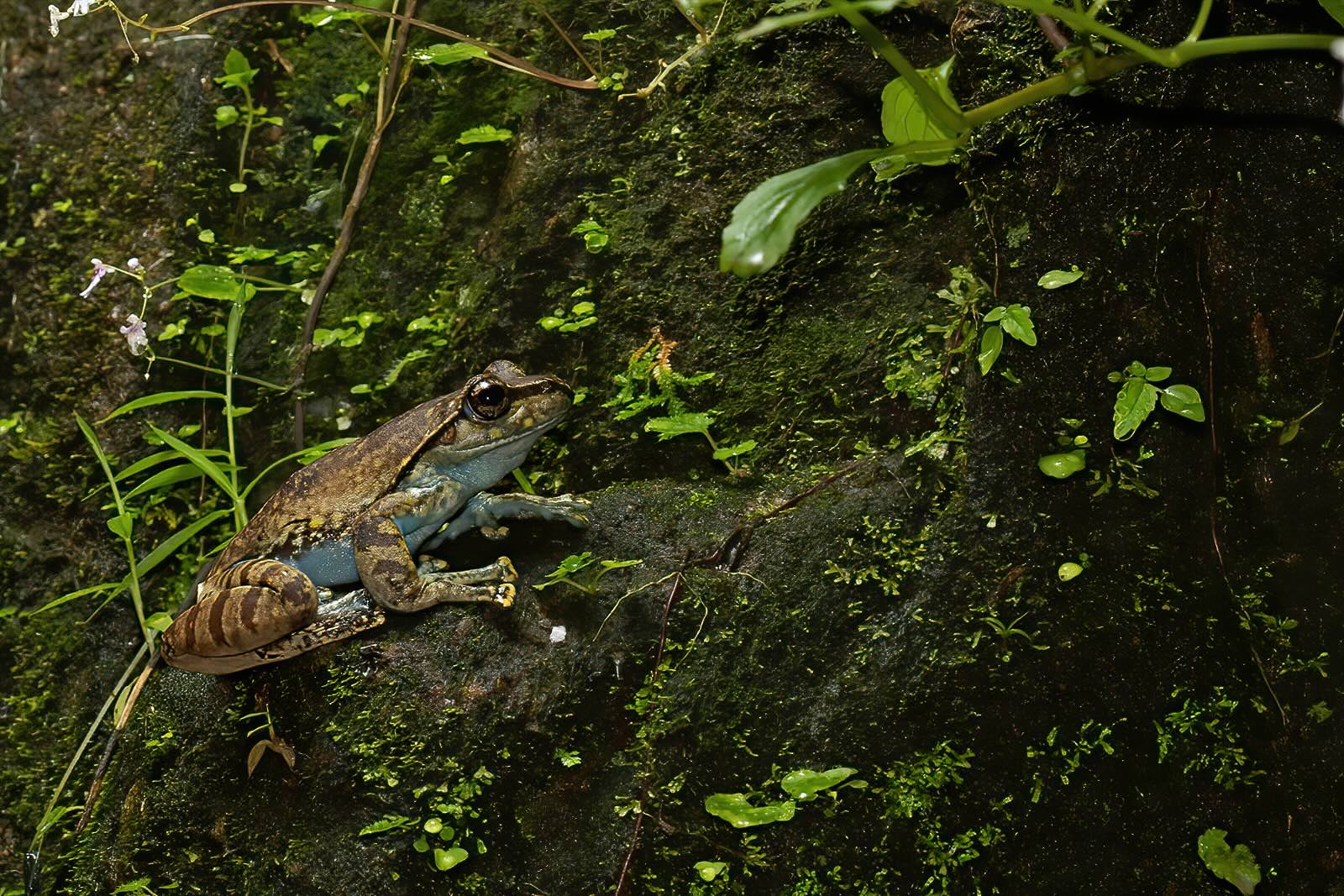The Agroforest Biodiversity project at WCS-India focuses on understudied lesser fauna of the Western Ghats. We have largely been studying amphibian communities in agroforests such as tea, coffee, rubber and areca nut plantations. Why are we so excited about amphibians? Well, these little frogs are essential to the balance of ecosystems, acting as nature's pest control agents, and they can tell us more about soil and water health in agricultural areas.
Our research broadly tries to understand:
- How and where do different species of amphibians live and breed in agroforest lands?
- How can we manage our agricultural lands and waterways better to conserve amphibians?
- What effect is climate change having on breeding amphibians?

We do this research by conducting surveys of frogs in the monsoon and recording their calls in different agroforests and water bodies. By gathering crucial data on their ecology and by collaborating with plantation owners and other stakeholders, we aim to inform sustainable agroforest management strategies and make an impact on the conservation of amphibians.